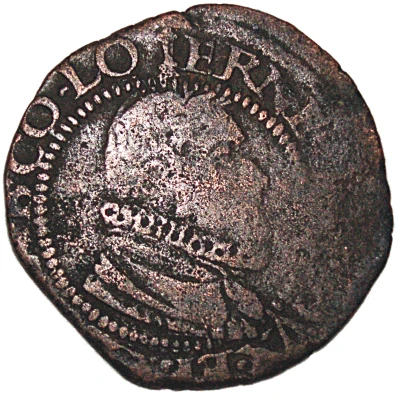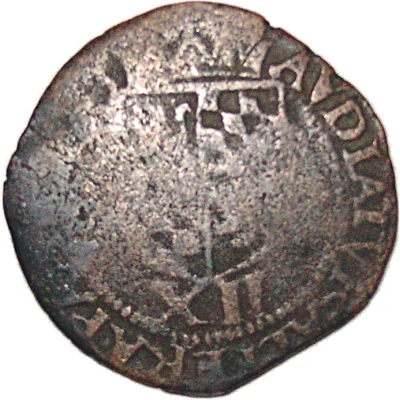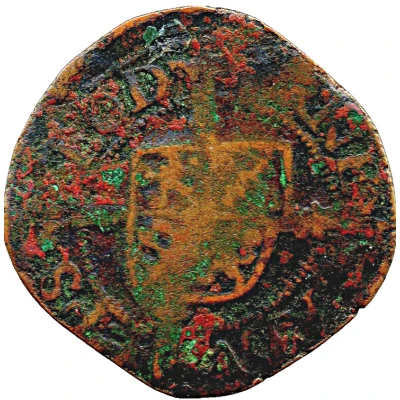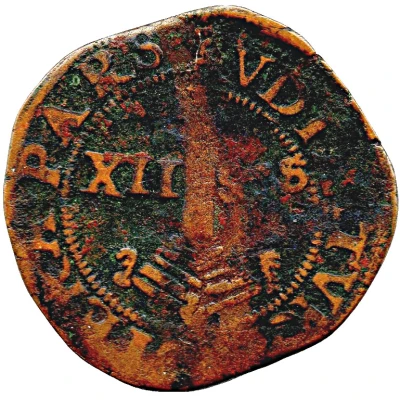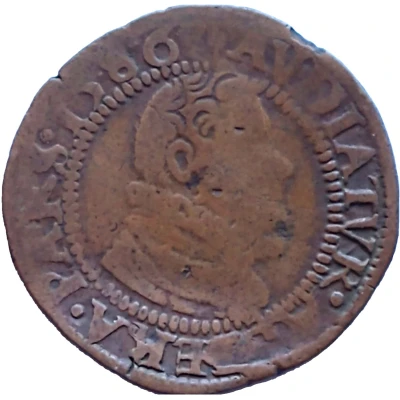
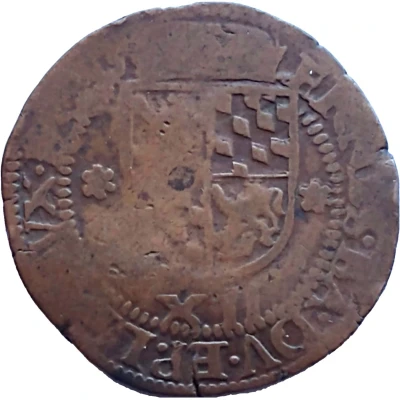

Obverse © @Adilson
Brûlé of 12 sols - Ernest of Bavaria titles reverse
1586 year| Copper | 2.3 g | 22.5 mm |
| Issuer | Prince-bishopric of Liege (Belgian States) |
|---|---|
| Prince-bishop | Ernest of Bavaria (Ernst von Bayern) (1581-1612) |
| Type | Standard circulation coin |
| Year | 1586 |
| Value | Brûlé = 12 Sols (1⁄160) |
| Currency | Florin Brabant-Liege (1545-1650) |
| Composition | Copper |
| Weight | 2.3 g |
| Diameter | 22.5 mm |
| Shape | Round (irregular) |
| Technique | Hammered |
| Orientation | Coin alignment ↑↓ |
| Demonetized | Yes |
| Updated | 2024-10-04 |
| Numista | N#365975 |
|---|---|
| Rarity index | 97% |
Reverse
Capped arms of Bavaria-Palatinate flanked by two rosettes. Value in Roman numerals below.
Script: Latin
Lettering:
ERNES · BA · DV · EP · LEO · DVX · B · C · LO
XII
Unabridged legend:
Ernestus Bavariae Dux Episcopus Leodiensis Dux Bullionensis Comes Loos
XII Solidi
Translation:
Ernest, Duke of Bavaria, Bishop of Liege, Duke of Bouillon and COunt of Looz
12 Sols
Comment
This coin, also known as a 1/2 aidant or a gigot, is similar to a slightly earlier Brule, but with the legends switched obverse to reverse (see link).Interesting fact
One interesting fact about this coin is that it was minted during a time of great turmoil in the Prince-bishopric of Liege, which was a small state in what is now Belgium. The coin was issued by Ernest of Bavaria, who was the Prince-bishop of Liege from 1581 to 1588. During his reign, the Prince-bishopric faced several challenges, including religious conflicts and political tensions with neighboring states. Despite these challenges, the coinage of the Prince-bishopric continued to be minted, and this particular coin, the Brûlé of 12 sols, is a testament to the resilience and resourcefulness of the people of Liege during that time.
